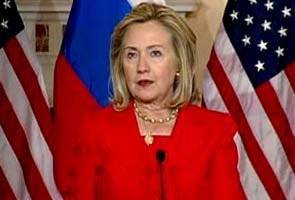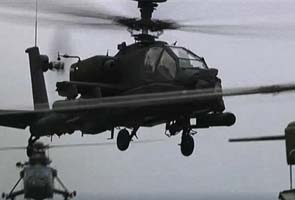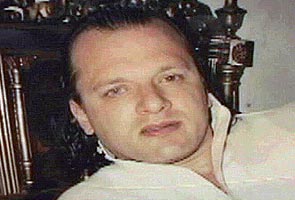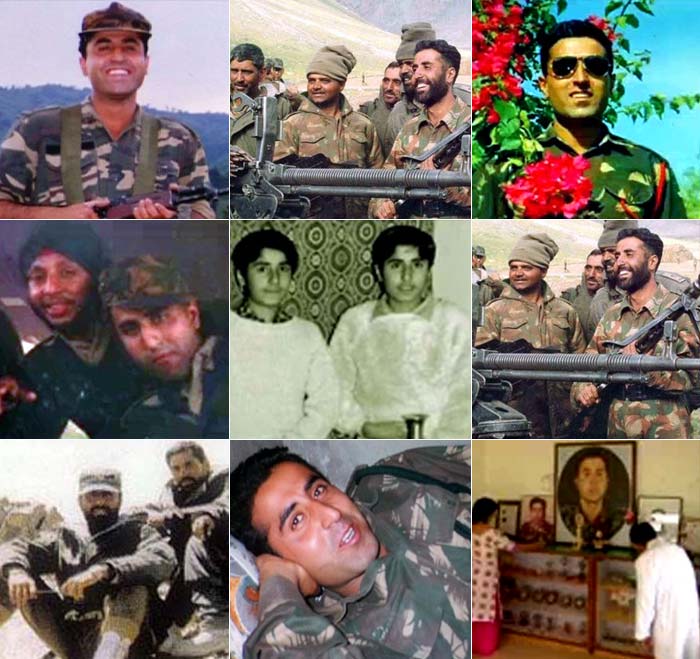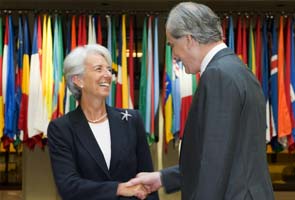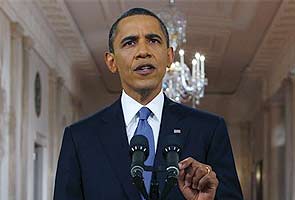31 july 2011
 Asian stock markets jumped Monday after President Barack Obama announced a last-minute agreement to raise the government's debt limit and avoid a default.
Asian stock markets jumped Monday after President Barack Obama announced a last-minute agreement to raise the government's debt limit and avoid a default.
Republican and Democratic leaders Sunday hashed out the details of a deal that would cut more than $2 trillion of federal spending over the next decade, but no votes are expected in either house of Congress until Monday at the earliest.
Japan's Nikkei 225 stock average was up 1.9 percent at 10,020.44 early Monday, while South Korea's Kospi gained 1.6 percent to 2,168.05.
Australia's benchmark stock index gained 2.1 percent to 4,515.1, and New Zealand rose 0.5 percent. China's Shanghai composite index dropped 0.4 percent
Markets fell last week on concern a stalemate over the debt limit would lead to the country's first debt default. The Treasury Department has said it will run out of money to pay the government's obligations Tuesday unless the debt limit is raised.
"It's a relief rally," said Lorraine Tan, an equities analyst with Standard and Poor's in Singapore. "First and foremost, there's not going to be a default. It takes the worst case scenario off the table"
U.S. stocks looked to soar at the opening of trading Monday morning. The Dow Jones industrial average and futures were up 1.4 percent Sunday night. Standard & Poor's 500 futures were up 1.5 percent.
Last week, both the Dow and the S&P 500 lost about 4 percent as investors grew more anxious about the prospects for a deal.
Gold, which tends to rise when investors aren't confident about other investments, rose 2 percent last week. Sunday night, it was down $16.10, or 1 percent, at $1,615.10 in pre-opening trading on the New York Mercantile Exchange.
The yield on the 10-year U.S. Treasury note, which moves opposite from its price, rose to 2.83 percent late Sunday from 2.80 percent Friday. The rise in Treasury yields is a sign that investors are less worried. Treasury bonds have long been considered the world's safest investment.
The stock rally will likely be tempered by concern about slowing U.S. economic growth. The U.S. said Friday that its economy grew at an annual rate of only 1.3 percent in the second quarter.
"There will be a limitation to the uptick because U.S. GDP numbers were exceptionally disappointing," Tan said. "There are still worries about a double-dip recession."
Investors will also be eyeing the latest data about U.S. manufacturing, auto sales and unemployment this week.
The dollar rose to 77.82 yen in Asia from 76.72 yen late Friday in New York. The euro fell to $1.4386 from $1.4403.

Republican and Democratic leaders Sunday hashed out the details of a deal that would cut more than $2 trillion of federal spending over the next decade, but no votes are expected in either house of Congress until Monday at the earliest.
Japan's Nikkei 225 stock average was up 1.9 percent at 10,020.44 early Monday, while South Korea's Kospi gained 1.6 percent to 2,168.05.
Australia's benchmark stock index gained 2.1 percent to 4,515.1, and New Zealand rose 0.5 percent. China's Shanghai composite index dropped 0.4 percent
Markets fell last week on concern a stalemate over the debt limit would lead to the country's first debt default. The Treasury Department has said it will run out of money to pay the government's obligations Tuesday unless the debt limit is raised.
"It's a relief rally," said Lorraine Tan, an equities analyst with Standard and Poor's in Singapore. "First and foremost, there's not going to be a default. It takes the worst case scenario off the table"
U.S. stocks looked to soar at the opening of trading Monday morning. The Dow Jones industrial average and futures were up 1.4 percent Sunday night. Standard & Poor's 500 futures were up 1.5 percent.
Last week, both the Dow and the S&P 500 lost about 4 percent as investors grew more anxious about the prospects for a deal.
Gold, which tends to rise when investors aren't confident about other investments, rose 2 percent last week. Sunday night, it was down $16.10, or 1 percent, at $1,615.10 in pre-opening trading on the New York Mercantile Exchange.
The yield on the 10-year U.S. Treasury note, which moves opposite from its price, rose to 2.83 percent late Sunday from 2.80 percent Friday. The rise in Treasury yields is a sign that investors are less worried. Treasury bonds have long been considered the world's safest investment.
The stock rally will likely be tempered by concern about slowing U.S. economic growth. The U.S. said Friday that its economy grew at an annual rate of only 1.3 percent in the second quarter.
"There will be a limitation to the uptick because U.S. GDP numbers were exceptionally disappointing," Tan said. "There are still worries about a double-dip recession."
Investors will also be eyeing the latest data about U.S. manufacturing, auto sales and unemployment this week.
The dollar rose to 77.82 yen in Asia from 76.72 yen late Friday in New York. The euro fell to $1.4386 from $1.4403.

















